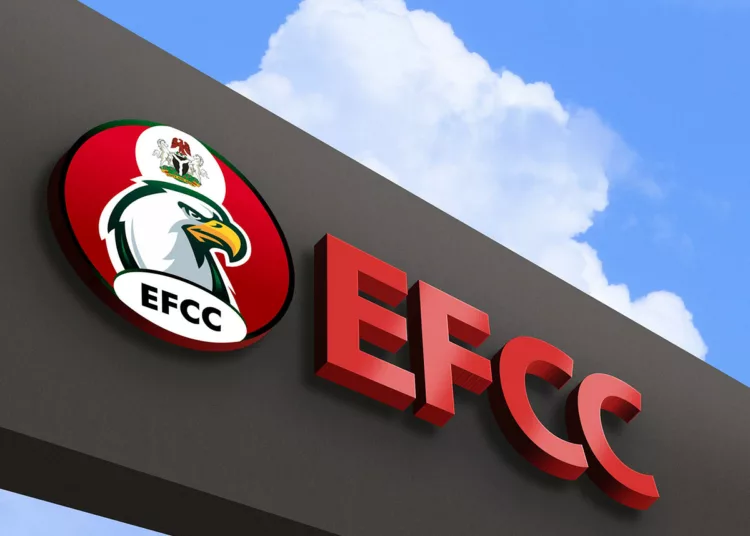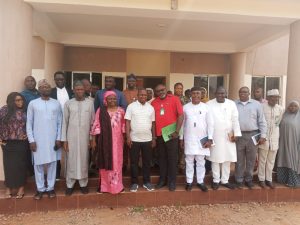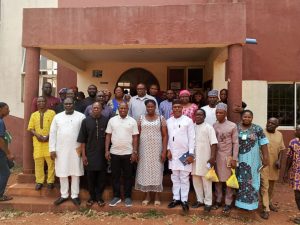State-Led Anti-Graft Efforts: A Necessary Response to EFCC’s Failings?

By Abdullahi Danladi
The Economic and Financial Crimes Commission (EFCC) has long prided itself as Nigeria’s foremost anti-corruption agency, but recent events suggest that its dominance in the fight against graft may be slipping—deservedly so.
Chairman Olanipekun Olukoyede’s recent lament over the inability of the EFCC to operate in 10 states due to court orders is emblematic of a larger problem within the commission itself. While Olukoyede attributed the agency’s struggles to frivolous court injunctions and legal technicalities, this narrative conveniently sidesteps the deeper issue of the EFCC’s shortcomings in executing its mandate effectively.
A glaring example of this is the new law in Lagos State, signed by Governor Babajide Sanwo-Olu, which transfers the investigation of corruption cases involving state finances from federal agencies like the EFCC and the Independent Corrupt Practices and Other Related Offences Commission (ICPC) to a newly created Lagos State Public Complaints and Anti-Corruption Commission. This law represents a bold move toward state-level autonomy in the fight against corruption, addressing the inefficiencies that have plagued the EFCC’s operations.
One might ask: why such a drastic shift? The answer is simple—the EFCC has increasingly failed to deliver on its promise of impartial and timely investigations. The commission’s penchant for relying on procedural technicalities, such as frequent adjournments and contempt orders, has slowed down high-profile cases to a crawl. For states like Lagos, the new legislation offers a way to cut through the red tape and address corruption within their own borders. After all, if the EFCC is bogged down by inefficiency, it’s only logical that states take matters into their own hands.
The advantages of this new rule are clear. First, it allows for quicker, more localized investigations that understand the unique context of state finances and governance. State-level anti-corruption bodies, unencumbered by federal bureaucracy, are in a better position to act swiftly. Second, it decentralizes the fight against corruption, making it more difficult for politically motivated federal bodies to use anti-graft agencies as tools for witch-hunting opponents. In essence, the Lagos law represents a shift toward a more accountable, grassroots approach to fighting corruption—a necessary step when the federal bodies appear compromised or ineffective.
Furthermore, this move by Lagos may set a precedent for other states, particularly those that have also grown frustrated with the EFCC’s lackluster performance. Kogi State, for instance, where Governor Yahaya Bello has been entangled in allegations of financial misconduct, has also experienced the effects of EFCC’s disobedience to court orders, countless readjustments and inconsistencies with charges, as well as refusal to interrogate the governor who voluntarily presented himself at the commission’s headquarters recently. These issues have caused a stir in the allegations making Nigerians and concerned citizens to question the motive behind EFCC’s allegations in the first place, many calling it a political persecution.
States have begun to recognize that the EFCC, once the standard-bearer of anti-corruption efforts, is no longer fit to act alone.
Olukoyede’s statements about the EFCC being restrained by court orders only serve to reinforce the point—if the agency is repeatedly blocked by judicial interventions, perhaps it’s time to reconsider whether its operations are truly in line with the law. The rise of state-level anti-graft agencies is not merely an obstruction of justice, as the EFCC might claim, but rather a necessary evolution in Nigeria’s fight against corruption.
Rather than viewing the new Lagos law as a threat, the EFCC should see it as a wake-up call to reform its own practices. Court orders and technical delays are not the sole reason for the agency’s ineffectiveness; inefficiency, lack of transparency, and political meddling have all played a part in diminishing the public’s trust in the EFCC. If the commission is serious about maintaining its relevance in the fight against corruption, it must address these internal flaws instead of pointing fingers at court rulings or state laws.
In conclusion, the shift toward state-led anti-corruption efforts should not be seen as an undermining of federal authority but as a corrective measure for an agency that has lost its way. The advantages of localized investigations, quicker action, and reduced political interference far outweigh any concerns of duplication. For the EFCC, this is an opportunity to reform and reassess its role—because if it continues on its current trajectory, more states will undoubtedly follow Lagos’ lead.
Abdullahi Danladi is a columnist with The Scope Newspaper, Abuja








